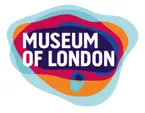
Museum of London
Description
**ANNOUNCEMENT**
The Museum of London will be opening its doors again on August 6th 2020. All safety measures and procedures will be undertaken.
Step inside the Museum of London for an unforgettable journey through the capital's turbulent past.
Discover prehistoric London, see how the city changed under Romans and Saxons, wonder at medieval London and examine the tumultuous years when London was ravaged by civil wars, plague and fire.
Then venture into the Galleries of Modern London, where you can walk the streets of Victorian London, take a stroll in recreated pleasure gardens and marvel at the magnificent Lord Mayor's Coach.
We accept Time Credits. Tickets to paid exhibitions cost two Time Credits each.
Contact
Address
Local Offer
Information
The Museum of London offers a dedicated learning programme for pupils with special educational needs and disabilities. This well-established programme currently offers to special schools, SEN units in mainstream schools and other alternative provision units one-day workshops and two-part sessions programmed over more than 50 dates during the academic year. It also offers 4 and 5 week tailored projects available on request and bespoke one-off sessions where possible.
Over 20 different one-day workshops and two-part sessions are currently offered at the Museum of London, at the Museum of London Docklands and as outreach visits to schools, as well as five different bespoke 4 and 5 week projects. The programme is run by a dedicated SEN Programme Manager who delivers sessions in conjunction with a team of specialist freelancers (artists, actors, musicians and storytellers).
Our sessions are attended by a full age range of pupils (from 5 to post-16) with a wide spectrum of physical and learning needs: moderate learning disabilities; severe learning disabilities; profound and multiple learning disabilities; autistic spectrum conditions; social, emotional and mental health issues; attention deficit and hyperactivity disorders; genetic disorders and complex medical conditions; speech, language and communication needs; sensory impairments; and many pupils with a combination of the above.
Our sessions support learning across the school curriculum – in Literacy, Geography, Citizenship, Art, Drama, Music as well as History. In addition, they all adopt an interactive and multi-sensory approach, catering for all learning styles and needs. They help to build social, practical, cognitive and communication skills through a mixture of object handling, role-play, replica costumes, drama, music, puppetry, art workshops, storytelling, digital learning and gallery exploration. All sessions can be readily adapted to suit the individual needs of pupils and we aim to offer every young person we work with a unique, personalised experience of the history of their city.
All of our sessions are supported by a wide range of online SEN resources on the Museum of London's website and we also offer work experience placements for pupils with learning and physical disabilities.
From Sep 2014 to Jul 2015, the SEN programme delivered 173 sessions to 1630 young people. During this period, 100% of teachers rated our SEN sessions as good or better in their feedback and 93% rated them as excellent.
For other visitors with SEND, we offer our Morning explorers sessions five times per year, at weekends and in school holidays. These are ASC friendly sessions run by our Visitor Hosts which give families with children who have an autistic spectrum condition the opportunity to come along and enjoy the museum before the arrival of the general public.
At the Museum of London, we also have Sensory Explorer bags, designed for visitors with physical and learning disabilities, which can be used when visiting the galleries. Our Visitor Hosts can also facilitate gallery tours for visitors with sensory impairments on request.
Supporting People With
- Autism
- Learning difficulty
- Mental health conditions
- Physical impairment
